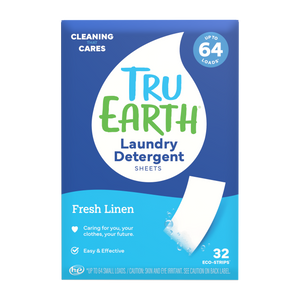Maintaining the pristine condition of your gas grill is about preserving its appearance and ensuring safe and flavorful grilling experiences. One cost-effective and eco-friendly solution for this is vinegar – a kitchen staple with remarkable cleaning properties.
In this guide, we will explore the step-by-step process of cleaning a gas grill using vinegar, unveiling the effectiveness of this household ingredient in conquering grease, grime, and stubborn residues.

Understanding the Importance of Gas Grill Cleaning
A clean grill is not just a matter of aesthetics; it's essential for optimal performance and food safety. Over time, grease buildup, food particles, and carbon deposits can accumulate on the grates and other components.
Regular cleaning not only enhances the longevity of your grill but also prevents flare-ups, ensures even cooking, and eliminates the risk of imparting off-flavors to your grilled masterpieces.
Gathering Your Cleaning Arsenal: The Role of Vinegar
Before we get into the cleaning process, let's understand why vinegar is an effective cleaning agent for gas grills.
White distilled vinegar, a versatile kitchen companion, possesses acidic properties that break down stubborn residues, cut through grease, and inhibit the growth of bacteria. Vinegar is non-toxic, making it a safer alternative to harsh chemical cleaners.
Pre-Cleaning Preparations: Ensuring Safety and Efficiency
Safety First
Begin by ensuring the gas supply to the grill is turned off. Disconnect the propane tank if you are working with a propane grill. Safety should always be the top priority.
Cool Down the Grill
Ideally, wait for the grill to cool down before cleaning. This not only prevents accidental burns but also makes it easier to handle the components.
Disassembling and Assessing the Grill Components
Remove the Grates
Start by removing the cooking grates. Depending on your grill model, you may need to lift, slide, or unscrew them. Place the grates in a basin or on a flat surface for cleaning.
Inspect the Burners and Heat Shields
Assess the burners and heat shields for any visible signs of wear, rust, or debris. Remove these components carefully, as they may need separate attention during cleaning.
The Vinegar Soak: Tackling Grease and Grime
Grate Soaking
Submerge the grates in a basin filled with equal parts vinegar and water. Let them soak for at least 15–30 minutes. The acidic nature of vinegar will work to dissolve grease and food residues.
Burner and Heat Shield Cleaning
Use a cloth or sponge soaked in vinegar to wipe down the burners and heat shields. A soft-bristle brush or an old toothbrush can be employed for stubborn deposits.
Scrubbing and Wiping: Restoring the Shine
Grate Scrubbing
After soaking, scrub the grates with a grill brush or scraper to remove any remaining debris. The combination of vinegar and physical scrubbing will lift off stubborn residues.
Burner and Shield Detailing
Scrub the burners and heat shields with a non-abrasive brush or sponge. Pay attention to crevices and corners where grease and carbon buildup may lurk.
Rinsing and Reassembling: Bringing It All Together
Thorough Rinse
Rinse all components thoroughly with water to remove any residual vinegar. This step is essential in ensuring no vinegar taste is transferred to your food during the next grilling session.
Air Drying
Allow the components to air dry completely before reassembling the grill. This prevents the formation of rust on metal parts.
Additional Tips for Gas Grill Maintenance
Regular Brushing
Incorporate regular brushing of the grates after each use to prevent the accumulation of residues. This quick routine maintenance can significantly extend the time between thorough cleanings.
Covering the Grill
Invest in a high-quality grill cover to protect your gas grill from the elements. This simple step can minimize the frequency of deep cleaning and shield the grill from rust.

Elevating Your Grilling Experience with Vinegar
By adopting the systematic approach outlined in this guide, you can harness the power of vinegar to maintain a clean and efficient gas grill.
Beyond the practical benefits, such as improved performance and longevity, there's a certain satisfaction in knowing you've achieved this with a simple household ingredient. So, the next time you fire up your gas grill for a barbecue, you can do so confidently, knowing that a clean and well-maintained grilling apparatus awaits you.

